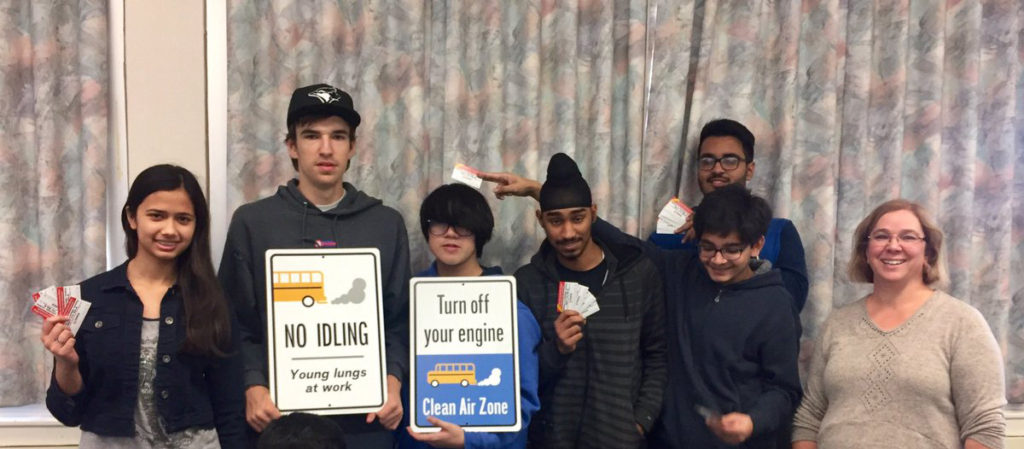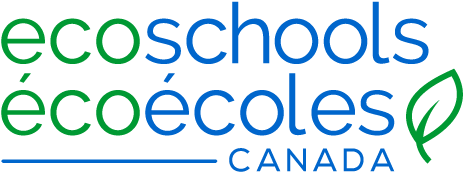
As part of our Climate Leadership Contest, we invited schools to share how they took climate action during COP 22 (November 7-18, 2016) for the chance to be entered into a $500 prize draw from Cascades. As the school year wraps up, we are excited to share two more winning schools’ stories!
Here is how Gordon Graydon PS in Peel District School Board (PDSB) took action to reduce air pollution during school drop-offs and pick-ups by communicating with the whole school, including parents and bus drivers. Responses are based on a condensed interview with their EcoTeam.
What was the action you chose and how does it relate to climate change?
We decided to run an anti-idling campaign. It is related to climate change because the longer vehicles idle, the more fuel they burn – The more fuel burned the more carbon dioxide and other greenhouse gases are released directly into the air. In addition, increased demand for fuel means that there will be more need to extract, refine and transport it to consumers which further adds greenhouse gases to the atmosphere. There is no need to idle at anytime.
How did you communicate your anti-idling message?
In the fall, we created a banner, business cards with information, and signs provided by a local community group. We designated several days to meet all the parents picking up students after school in the parking lot and distribute cards to talk to them about not idling. We also talked to a couple of the bus drivers who tend to idle longer than necessary. Later in the year we planned a school-wide information campaign with announcements and a video for our media wall.
How did you convince the whole school to go idle-free?
We believe that climate change is a real issue and we can contribute solutions through our everyday actions. Many people think that leaving their cars on in order to keep the seats warm in winter will not do much damage but they are wrong; by idling vehicles we are directly contributing to the release of harmful CO2 emissions.
How did the action impact your school community and EcoTeam habits?
This campaign is consistent with our school’s participation in the Ontario EcoSchools program: we care about the environment and want to do our part to help. Since pickup time after school is when most idling occurs, this simple action can help us decrease the large amount of CO2 emissions that are being released into the air just from our parking lot. We can also positively influence the habits of the family members of the Green Team and the families we talk to in the parking lot.
Does your school have any other climate actions planned for this year?
All of our energy and waste monitoring and information sharing will be climate actions.
Ontario EcoSchools Tips and further reading:
- Get more tips on running your own anti-idling campaign by reading our interview with St. Joseph Catholic School (ALCDSB), another Climate Leadership Contest winner.
- Wondering how transportation choices affect climate change? Get the basics in our Climate Change and Transportation fact sheet.
- Access more resources on Idle Free School Zones from Active & Safe Routes to School.

Recent Comments